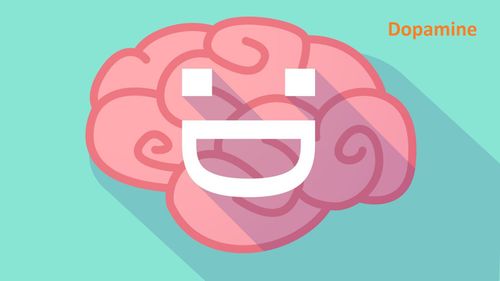This is an automatically translated article.
We have always known that music has a powerful effect on human emotions. But now we know that music improves memory and cognitive skills. So what is the role of music in education, and are children listening to music smarter?1. What happens when babies listen to music?
We have always known that music has a powerful effect on human emotions. But now we know that music also improves memory and cognitive skills.This is because listening and playing music produces changes in the brain. Additionally, both activities can release a healthy dose of endorphins, known as the "happy hormone".
Neuroscientists studying children's brains say music also has long-term benefits for babies. Music makes a big difference to young brains. A study from the Institute of Brain and Learning Sciences found that after children listened to music, their hearing and prefrontal cortex looked different. These are the brain regions responsible for processing both music and speech.
Not only that, when young children interact with others, the positive effect of listening to music is also reflected in personality traits such as children becoming happier and more cooperative.

Các nhà khoa học thần kinh nghiên cứu não bộ trẻ em cho biết âm nhạc cũng có lợi ích lâu dài cho trẻ sơ sinh
2. How does playing music affect children?
While listening to music affects the brain, making music more powerful, making music (playing music) requires fine motor skills, such as the ability to hold and squeeze objects, as well as linguistic accuracy, math, and creativity. These skills activate certain brain regions.Practicing these skills means developing a bridge between the two hemispheres of the brain, allowing messages to travel through the brain faster and possibly through different routes.
3. The benefits of music for children
When young children are exposed to music, their brains change. Music has many benefits for children, including:Improves mood in young children by reducing stress levels. Even listening to sad music can be good for children, thanks to the catalytic power of music, making it easier for children to get in touch with their emotions. Stimulates the formation and release of brain chemicals such as dopamine and oxytocin. When they are liberated, children are encouraged to share toys, empathize and trust others more. Enhance concentration skills and productivity. Improve learning and grades. Develop intelligence, spatial awareness, and lay the foundation for an interest in math, engineering, computer science, and architecture. Improve children's vocabulary and creativity. The benefits of music can be gained through experiencing music in many forms. Listen to a song, play an instrument, or pick up anything in the classroom or at home and make music with it.

Những lợi ích của âm nhạc có thể được thông qua việc trải nghiệm âm nhạc dưới nhiều hình thức
4. The role of music in education
When all this scientific evidence is applied in home education and early learning centers, even in short doses, children get smarter.Graham Welsh, a British neuroscientist who studies the effects of music on the brains of young children, said: “We found an impact on literacy, numeracy, physical development, motor coordination. gross motor skills (such as running and jumping), fine motor skills, and social and emotional development.”
While schools often focus on literacy and numeracy because those are the outcomes they are used to measure teaching effectiveness. But music can open a child's path to learning in a way that no other thing can. It builds children's confidence and language skills, and can improve their math scores when they go to school.
Research on the impact of music on learning has been conducted for decades. Research into the Mozart Effect suggests that listening to Mozart's music can temporarily improve performance and possibly even IQ.
This became popular in the late 1950s, parents everywhere began to try and expose their children to more classical music. The theory became so popular that the Governor of Georgia even proposed a budget that would allow every child born in Georgia to receive a classical music CD. Do Georgia's children now have IQs that surpass the national average? Does Mozart really make our kids smarter?
As with most theories, critics' verdict on the Mozart Effect has been controversial. But what is generally uncontroversial, and supported by a lot of evidence, is the fact that continuing music education actually helps children on multiple criteria, including overall academic performance.
A research team from McMaster University, Canada compared two groups of six children between the ages of 4 and 6; one group studied Suzuki's music and the other had no music instruction. The results, published in the online journal Brain on September 20, 2006, showed that children who received musical instruction outperformed their peers in terms of memory skills as well as the ability to "non-sound". music” such as literacy, math, and even IQ.
Brigid Finucane, a Children's Music Instructor at the Merit School of Music in Chicago, has witnessed first-hand the positive effects of teaching music to children. Formal music instruction requires focus, discipline, and determination, which are excellent qualities that are often incorporated into other areas of a student's life.
Rhythm and melody are important components in music. Children who can maintain a steady rhythm will read more fluently. The music we sing provides a rich vocabulary, teaches children to use language, poetry, allows children to visualize and encourages good pronunciation. Through music, children can learn about themselves, their cultures and those of others, as well as learn about science and math, creativity, work, the environment, memories and emotions. .
Scott Cross, Kindermusik International's Director of Educational Development, also believes that the benefits of music classes will affect academic achievement. Music is used to help toddlers understand concepts like high and low, fast and slow, start and stop.

Những đứa trẻ có thể duy trì nhịp điệu ổn định sẽ đọc trôi chảy hơn
The benefits of teaching music are not limited to the early years. According to the National Association for Music Education, SAT test takers with a background related to music teaching scored significantly higher than those with no music training, specifically, 56 higher score for the verbal section and 39 points for the math portion of the test.
Others advocating music instruction also cite numerous “non-musical” benefits including building higher self-esteem, focus, and coordination. The longer the musical instruction lasts, the greater the benefits.
As Finucane explains: "Teachers at the place I work tell me many stories about how the kids have progressed more deeply with music in the curriculum." Therefore, it is time for music to become part of the core curriculum.
Please follow the website: Vinmec.com regularly to update many other useful information.
Please dial HOTLINE for more information or register for an appointment HERE. Download MyVinmec app to make appointments faster and to manage your bookings easily.
Reference source: babycenter.com, unicef.org












